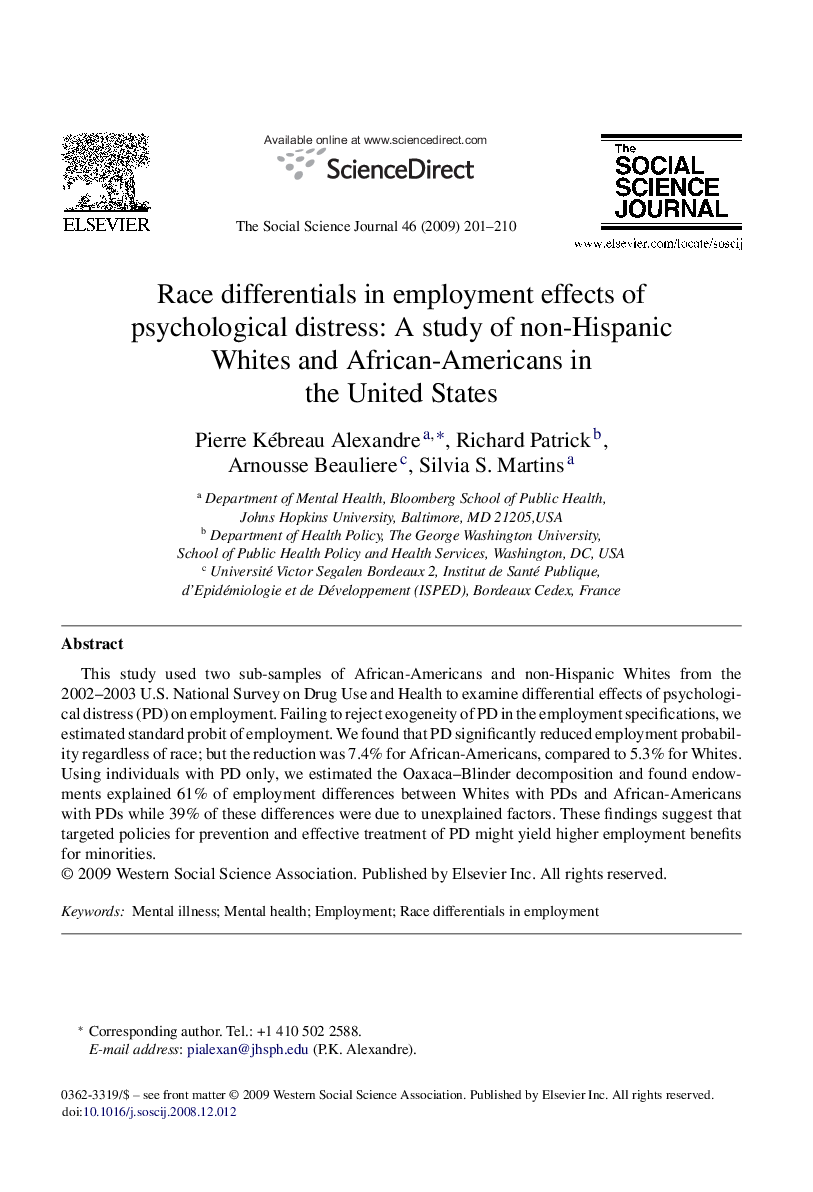| Article ID | Journal | Published Year | Pages | File Type |
|---|---|---|---|---|
| 140669 | The Social Science Journal | 2009 | 10 Pages |
This study used two sub-samples of African-Americans and non-Hispanic Whites from the 2002–2003 U.S. National Survey on Drug Use and Health to examine differential effects of psychological distress (PD) on employment. Failing to reject exogeneity of PD in the employment specifications, we estimated standard probit of employment. We found that PD significantly reduced employment probability regardless of race; but the reduction was 7.4% for African-Americans, compared to 5.3% for Whites. Using individuals with PD only, we estimated the Oaxaca–Blinder decomposition and found endowments explained 61% of employment differences between Whites with PDs and African-Americans with PDs while 39% of these differences were due to unexplained factors. These findings suggest that targeted policies for prevention and effective treatment of PD might yield higher employment benefits for minorities.
